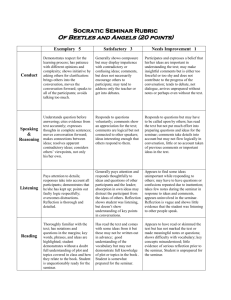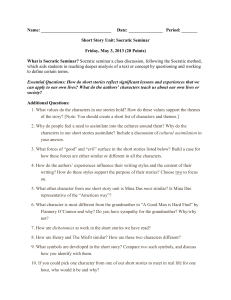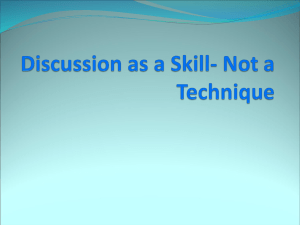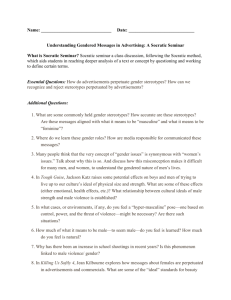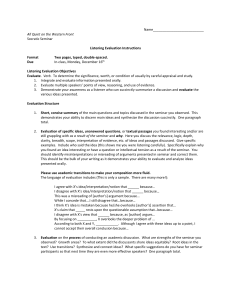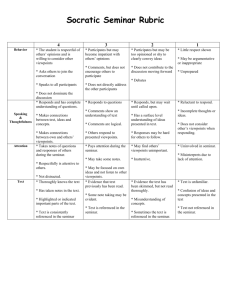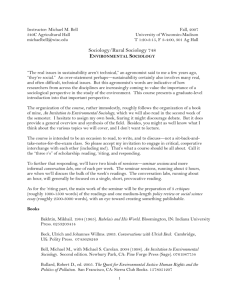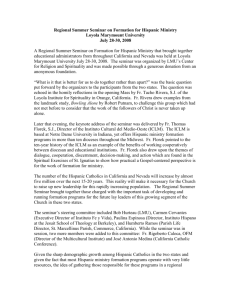SS Analytic Rubric
advertisement
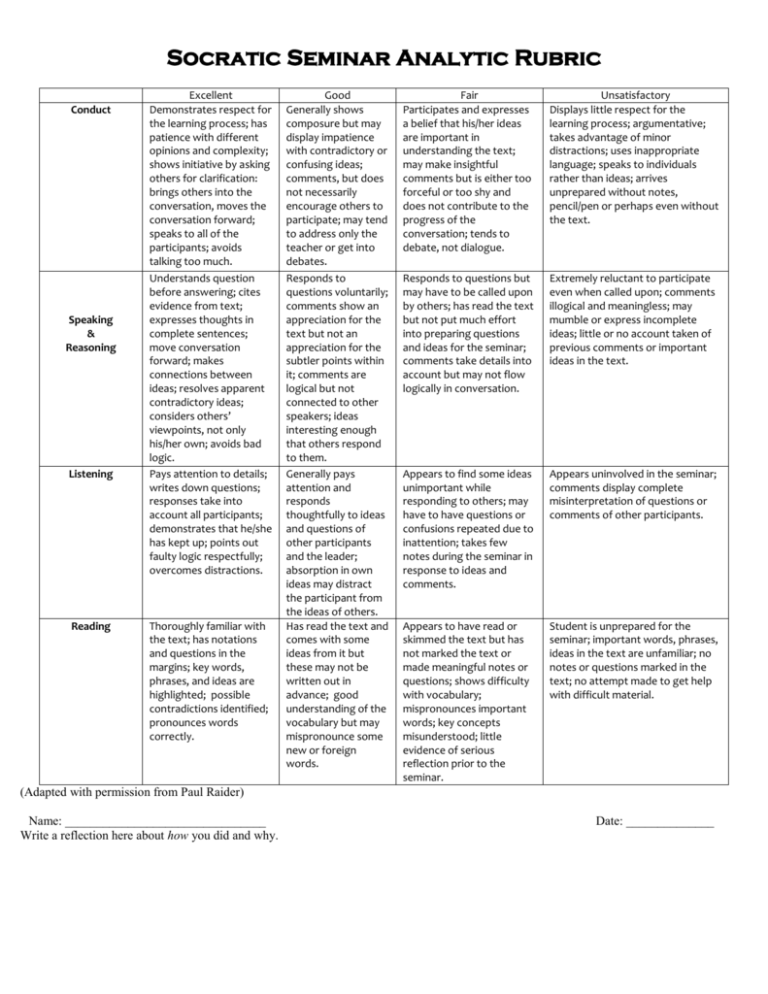
Socratic Seminar Analytic Rubric Conduct Speaking & Reasoning Listening Reading Excellent Demonstrates respect for the learning process; has patience with different opinions and complexity; shows initiative by asking others for clarification: brings others into the conversation, moves the conversation forward; speaks to all of the participants; avoids talking too much. Good Generally shows composure but may display impatience with contradictory or confusing ideas; comments, but does not necessarily encourage others to participate; may tend to address only the teacher or get into debates. Fair Participates and expresses a belief that his/her ideas are important in understanding the text; may make insightful comments but is either too forceful or too shy and does not contribute to the progress of the conversation; tends to debate, not dialogue. Unsatisfactory Displays little respect for the learning process; argumentative; takes advantage of minor distractions; uses inappropriate language; speaks to individuals rather than ideas; arrives unprepared without notes, pencil/pen or perhaps even without the text. Understands question before answering; cites evidence from text; expresses thoughts in complete sentences; move conversation forward; makes connections between ideas; resolves apparent contradictory ideas; considers others’ viewpoints, not only his/her own; avoids bad logic. Pays attention to details; writes down questions; responses take into account all participants; demonstrates that he/she has kept up; points out faulty logic respectfully; overcomes distractions. Responds to questions voluntarily; comments show an appreciation for the text but not an appreciation for the subtler points within it; comments are logical but not connected to other speakers; ideas interesting enough that others respond to them. Generally pays attention and responds thoughtfully to ideas and questions of other participants and the leader; absorption in own ideas may distract the participant from the ideas of others. Has read the text and comes with some ideas from it but these may not be written out in advance; good understanding of the vocabulary but may mispronounce some new or foreign words. Responds to questions but may have to be called upon by others; has read the text but not put much effort into preparing questions and ideas for the seminar; comments take details into account but may not flow logically in conversation. Extremely reluctant to participate even when called upon; comments illogical and meaningless; may mumble or express incomplete ideas; little or no account taken of previous comments or important ideas in the text. Appears to find some ideas unimportant while responding to others; may have to have questions or confusions repeated due to inattention; takes few notes during the seminar in response to ideas and comments. Appears uninvolved in the seminar; comments display complete misinterpretation of questions or comments of other participants. Appears to have read or skimmed the text but has not marked the text or made meaningful notes or questions; shows difficulty with vocabulary; mispronounces important words; key concepts misunderstood; little evidence of serious reflection prior to the seminar. Student is unprepared for the seminar; important words, phrases, ideas in the text are unfamiliar; no notes or questions marked in the text; no attempt made to get help with difficult material. Thoroughly familiar with the text; has notations and questions in the margins; key words, phrases, and ideas are highlighted; possible contradictions identified; pronounces words correctly. (Adapted with permission from Paul Raider) Name: ________________________________ Write a reflection here about how you did and why. Date: ______________
